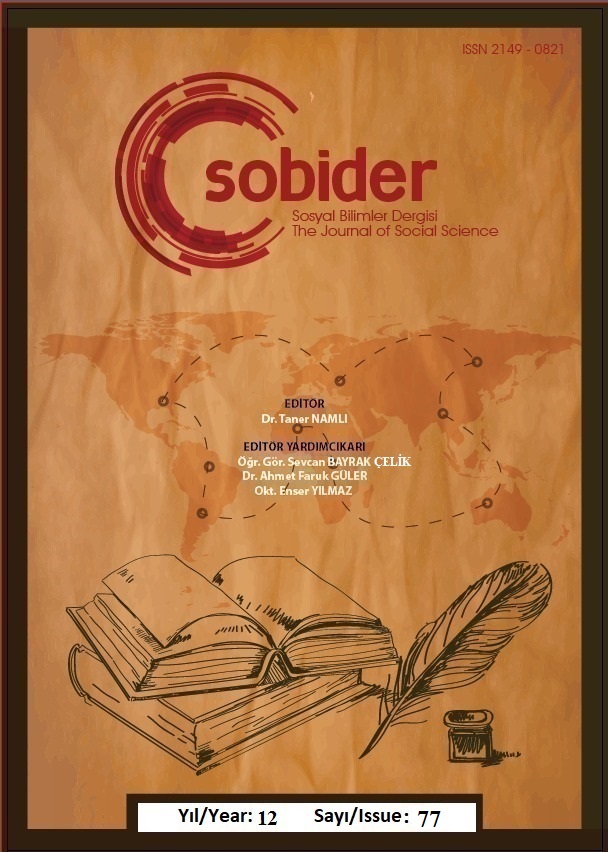Author :
Abstract
Bu çalışma, Türkiye’de cenaze ritüellerinin dönüşen toplumsal işlevlerini katılımcı deneyimleri üzerinden incelemektedir. Geleneksel olarak dini semboller etrafında şekillenen bu ritüeller, geçmişte toplumsal dayanışmayı ve yas sürecinde desteği güçlendirirken, günümüzde bireysel ifadeye, sadeleşmeye ve dijitalleşmeye uyum sağlamaktadır. Türkiye’nin farklı illerinden 45 katılımcıyla yapılan derinlemesine görüşmelerde, bazı pratiklerin anlamını yitirdiği, sosyal baskıyla zorunlu hale geldiği ve samimiyetinin sorgulandığı görülmüştür. Collins’in ritüel etkileşim zinciri kuramı bağlamında değerlendirilen bulgular, ritüellerin duygusal enerji ve aidiyet üretme potansiyelini sürdürmekle birlikte, boş ya da zorunlu algılanan uygulamaların bu işlevi zayıflattığını ortaya koymaktadır. Sonuç olarak, cenaze ritüelleri hem toplumsal normlara hem de bireysel ihtiyaçlara göre yeniden şekillenmekte, bu da yas sürecini ve sosyal dayanışma biçimlerini dönüştürmektedir.
Keywords
Abstract
This study examines the transformation of funeral rituals in Turkey through participants' lived experiences. While these rituals traditionally revolved around religious symbols and reinforced social solidarity and mourning support, they have recently evolved into practices that reflect individual expression, simplification, and digital adaptation. In-depth interviews with 45 participants from various provinces reveal that some rituals have lost their meaning, are performed out of social obligation, and are often perceived as insincere. Within the framework of Collins’ Interaction Ritual Chain Theory, the findings show that while rituals still have the potential to generate emotional energy and a sense of belonging, those seen as forced or hollow lose this impact. The study concludes that funeral rituals are undergoing a functional and symbolic shift, shaped by both societal norms and individual needs, which in turn influences mourning experiences and social cohesion.





